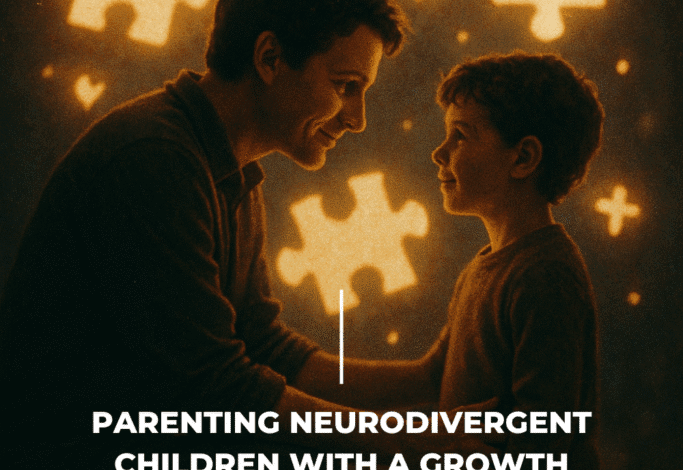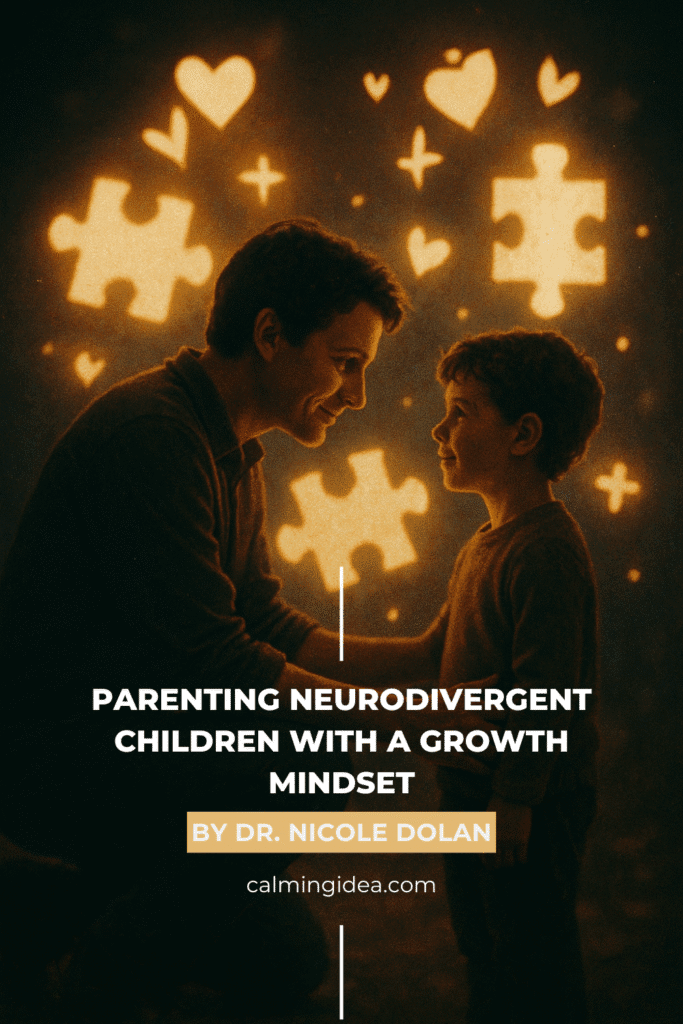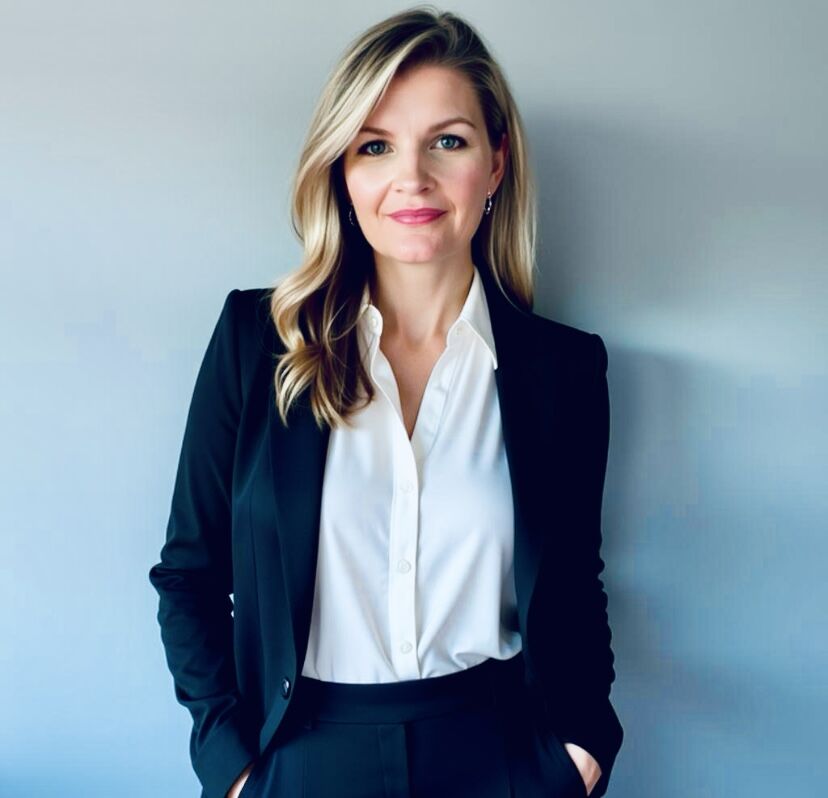Parenting Neurodivergent Children with a Growth Mindset

Learn how a growth mindset can transform parenting neurodivergent children—shifting struggles into connection, resilience, and compassion.
By Dr. Nicole Dolan
It was supposed to be a quick stop at the park. The sun was setting, the last children were called home, and I began gathering our things. But my daughter wasn’t ready. As the playground emptied, her joy spiraled into fury. She arched her back, screamed, and refused the car seat with every ounce of her strength.
For forty-five minutes, I tried to soothe, reason, and gently guide her, but nothing worked. I knew I could force her in, but not without hurting her — and I couldn’t do that. So I stood outside the car, placed my hands on the roof, and closed my eyes. I breathed into my own body. I tapped my chest lightly, rhythmically, reminding my nervous system that we were safe. Only then could I re-enter the moment with enough presence to try again.
For years, I believed these struggles meant something was wrong — with her, with me, with us. Professionals labeled it “behavioral,” strangers muttered “defiance,” and even those close to us sometimes said “bad parenting.” But what I’ve learned is this: raising a neurodivergent child isn’t about control. It’s about capacity, compassion, and the mindset we bring to the chaos.

Why Mindset Matters In Parenting
Psychologist Carol Dweck’s research on growth mindset reminds us that intelligence and ability are not fixed traits — they can develop with effort, learning, and support. While her work often focuses on academics, the same principle applies to parenting, especially with sensitive and neurodivergent children.
A fixed mindset whispers, “This is too hard. Nothing will change.”
A growth mindset says, “We’re still learning. This moment will pass. Every meltdown is an opportunity to understand more deeply.”
This shift isn’t just theoretical. It shapes how we meet our children — and how we meet ourselves.
Parenting As A Mirror
Parenting a child with a sensitive nervous system is like holding a mirror up to yourself. Their intensity awakens our own — their dysregulation stirs our deepest fears.
Perhaps your child whines or yells in ways that were never allowed in your own home, leaving you flooded with discomfort. Or maybe you grew up with an explosive parent, and when your child tantrums, your body reacts with fear even though your adult mind knows you are safe. In these moments, your inner child is crying out for the soothing you didn’t receive.
I’ve experienced this too. When my daughter shifted from joy to rage — laughing one moment at the park, then screaming in the car the next — my body felt destabilized. That instability mirrored my own nervous system imprints from childhood and adolescence, when life could change from safe to unsafe without warning.
This is the hidden gift of parenting: our children awaken us. They bring us to our edges. And at those edges, growth becomes possible.
Growth Mindset In Action
A growth mindset doesn’t erase the hard moments, but it gives us tools to navigate them with more grace.
- Self-compassion: Instead of criticizing yourself for losing patience, honor the moments you did pause, breathe, and re-enter with calm. These are small victories that grow over time.
- Modeling curiosity and repair: Ask, “I wonder what that was like for you? How can we do it differently next time?” Normalize imperfection by showing your child that mistakes can be repaired, relationships restored.
- Expanding capacity: Notice when you can stay grounded longer than before — when three minutes of presence becomes ten. Celebrate this growth in yourself as much as in your child.
When we shift from perfectionism to progress, and from self-blame to self-compassion, we create a nervous system environment where both parent and child can learn to regulate together.
The Larger Invitation
Neurodivergent children often process the world with extraordinary intensity. Lights feel brighter, sounds sharper, transitions harder. What looks like “defiance” is often communication. What seems like “chaos” is the body signaling overwhelm.
If we meet that intensity with judgment, we reinforce shame. If we meet it with curiosity and compassion, we open space for connection, resilience, and healing.
Our children don’t just need strategies. They need us to see them as whole, capable, and in process. And they need us to see ourselves the same way.
Closing
Parenting through meltdowns and sensory storms can feel exhausting. But within those moments lies an invitation: to grow alongside our children. To let their challenges become our teachers. To trust that, together, we are works in progress — always learning, always becoming.
When we embrace a growth mindset, we stop asking, “How do I control this?” and begin asking, “How can we grow from this?” That shift changes everything.

Dr. Nicole Dolan is a depth psychologist, author, coach, and mother of highly sensitive/neurodivergent children. She is the founder and clinical director of Sacred Path Holistic Therapy and the creator of the Sacred Architect coaching pathway, where she guides awakening women, individuals, and parents of neurodivergent children through chaos, healing, and transformation. Nicole integrates neuroscience, depth psychology, and spirituality to support nervous system regulation and embodied wholeness. Her forthcoming memoir, The Art of Chaos, explores motherhood, ancestral healing, and awakening through the lens of personal and collective transformation. Learn more at www.drnicoledolan.com.




